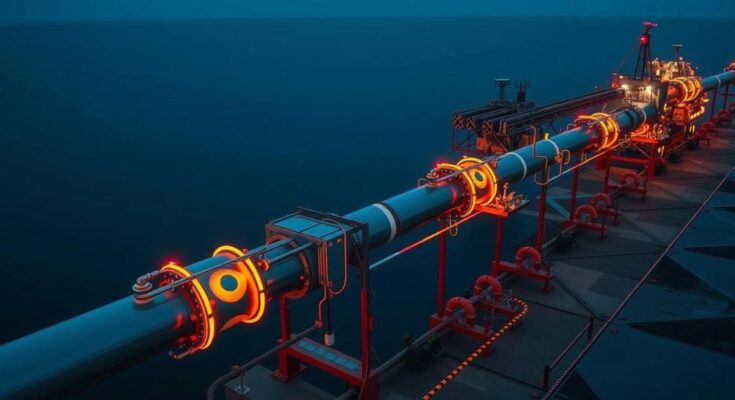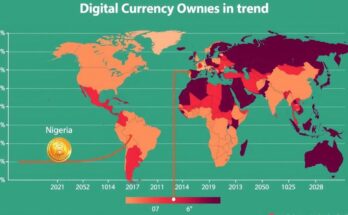Brazil’s Grupo Matrix Energia and Argentina’s TotalEnergies have partnered with Bolivia’s YPFB to transport natural gas from Argentina’s Vaca Muerta shale formation. The agreement, signed on November 22, leverages Bolivia’s 1,000-kilometer pipeline network to facilitate energy integration between Argentina and Brazil. Furthermore, YPF plans to enhance production through new LNG projects and secure significant financing for pipeline development.
Recent developments in South American energy collaboration emerged with Brazil’s Grupo Matrix Energia and Argentina’s TotalEnergies entering a partnership with Bolivia’s state-owned energy company, YPFB, to facilitate the transportation of natural gas from Argentina’s Vaca Muerta shale formation. Signed on November 22, this agreement aims to optimize the region’s changing supply dynamics by leveraging Bolivia’s existing transport infrastructure, which includes a 1,000-kilometer pipeline network linking Argentina and Brazil. This strategic move is expected to enhance the delivery of Argentine gas supplies to Brazilian consumers, thereby fostering greater energy integration between the two nations.
Historically, Bolivia played a critical role as a gas producer in the region; however, its exports have significantly decreased. Consequently, Argentina and Brazil are seeking alternative supply routes to maintain energy security. Argentina, which is recognized for having the world’s second-largest shale gas reserves, is actively working towards positioning itself as a noteworthy gas exporter. Although progress is being made, the development of an efficient pipeline network and the establishment of commercial frameworks for tariff negotiations remain ongoing challenges.
As part of this agreement, YPFB’s gas transportation companies will oversee the flow of natural gas through their infrastructure. Notably, TotalEnergies has also acquired permits to export natural gas from Argentina’s Austral and Neuquen Basins to Brazil. Moreover, in a strategic maneuver, YPF is reportedly combining its liquefied natural gas (LNG) project with a partnership involving Pan American Energy Group and Golar LNG, aimed at increasing production and exports from the Vaca Muerta region. Further developments indicate that YPF intends to secure $2 billion in financing for the Vaca Muerta Sur pipeline project by the second quarter of 2025, which seeks to transport an additional 390,000 barrels per day of oil to a coastal export terminal located in Rio Negro province, Argentina. This initiative is led by Vaca Muerta Oil Sur, under YPF’s control.
The collaboration between Brazil, Argentina, and Bolivia marks a significant shift in the regional energy landscape, particularly in light of the declining export capacity of Bolivia. Argentina’s Vaca Muerta shale formation is integral to the trio’s strategy, given its vast reserves and potential for boosting gas and oil exports. The agreement represents a bid to re-establish regional energy security and reliance while optimizing existing infrastructure, showcasing the importance of strategic energy partnerships in the current economic climate of South America.
In summary, the partnership between Brazil’s Grupo Matrix Energia, Argentina’s TotalEnergies, and Bolivia’s YPFB is a critical development aimed at fostering energy collaboration in South America. By addressing the transportation of natural gas from the Vaca Muerta formation, the agreement not only reinforces trade relations between Argentina and Brazil but also seeks to revitalize Bolivia’s role in the energy market. As efforts intensify towards the enhancement of pipeline infrastructure and strategic investments, the regional energy framework is poised for considerable transformation.
Original Source: www.offshore-technology.com




